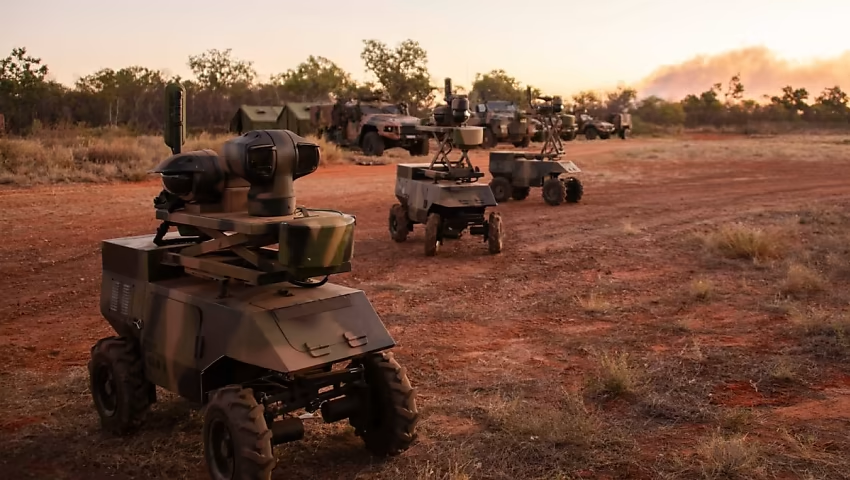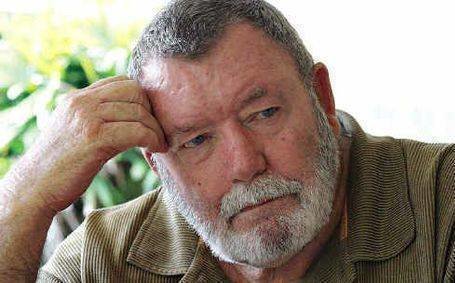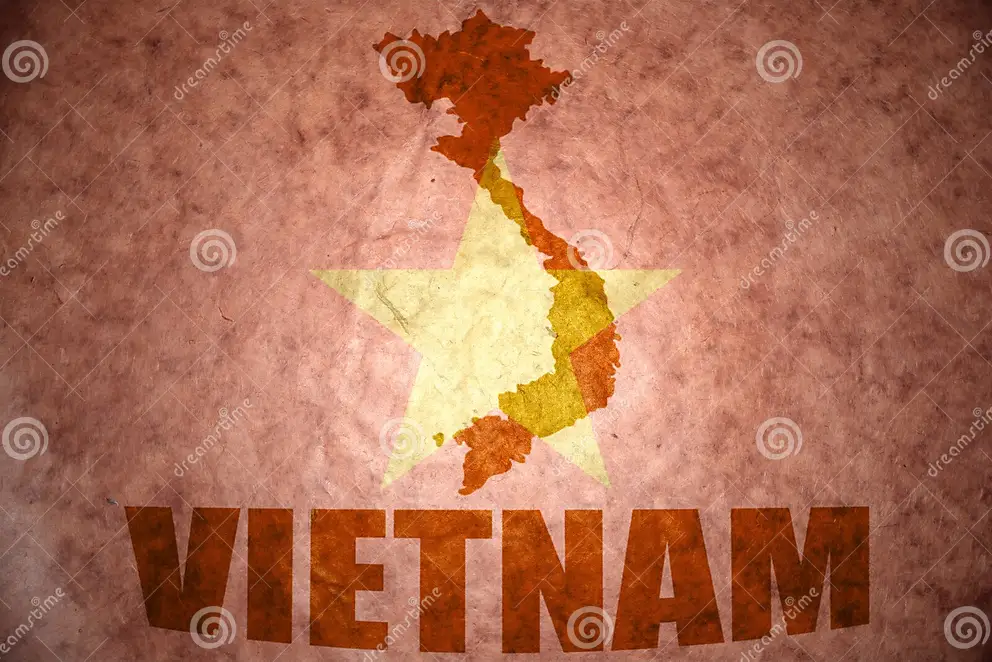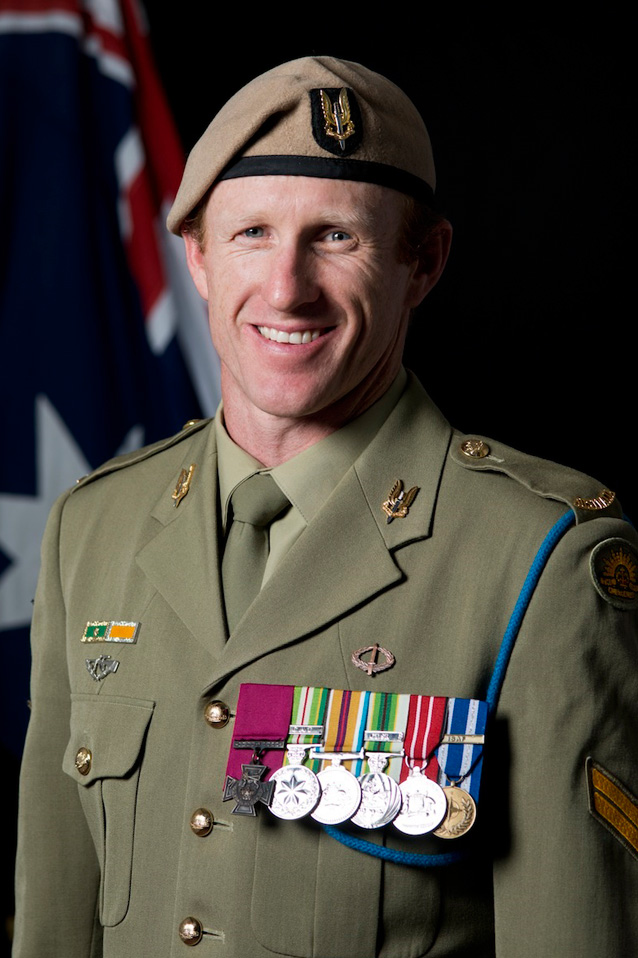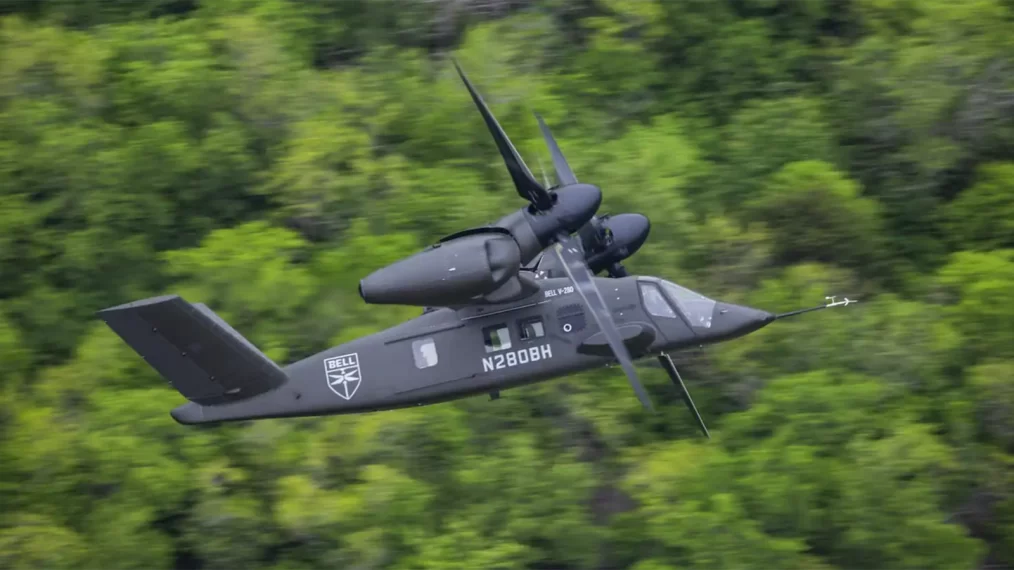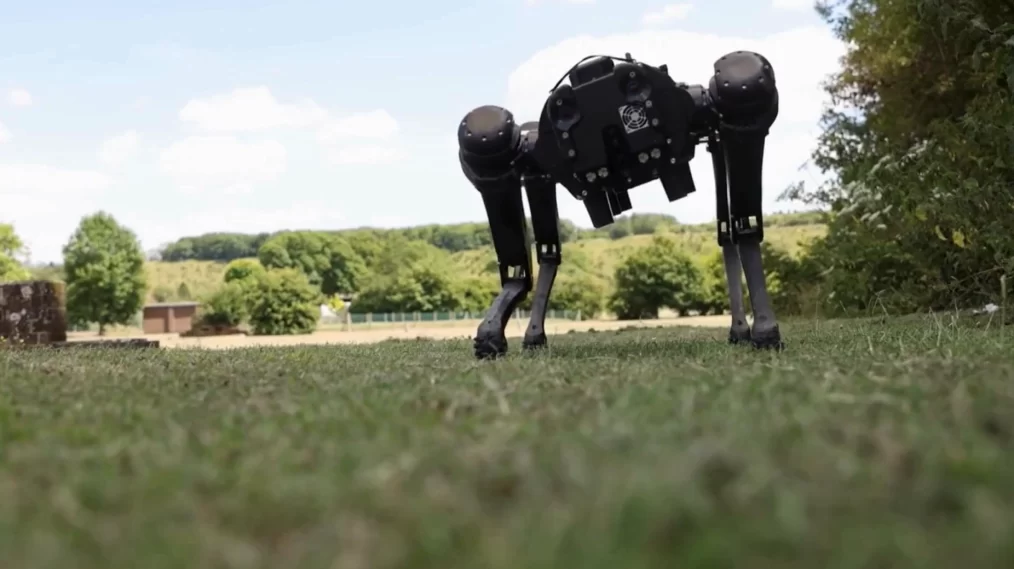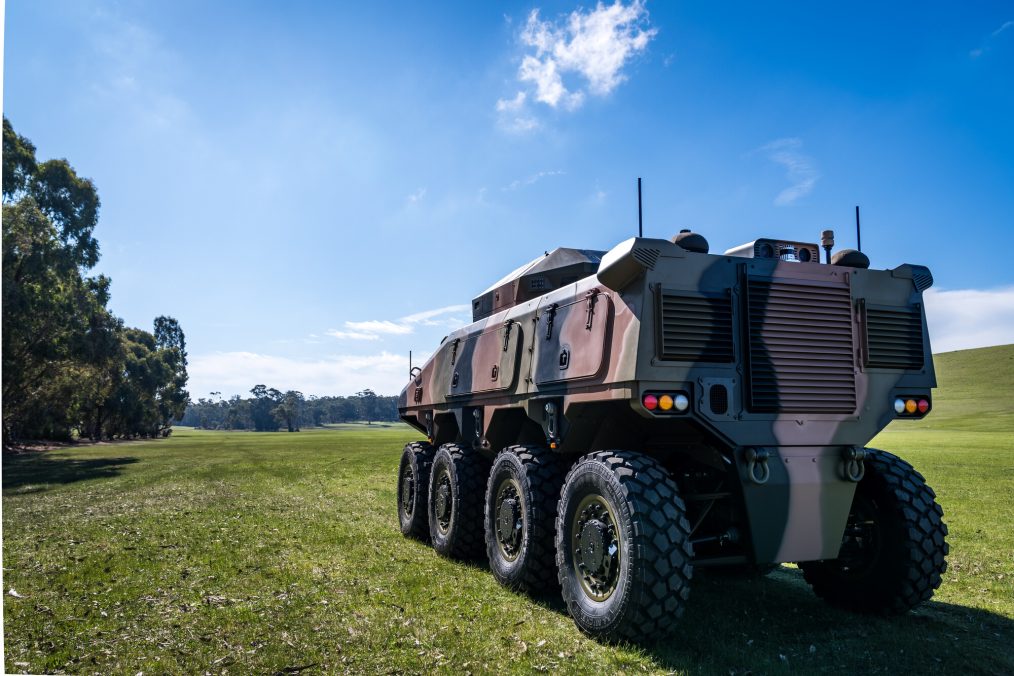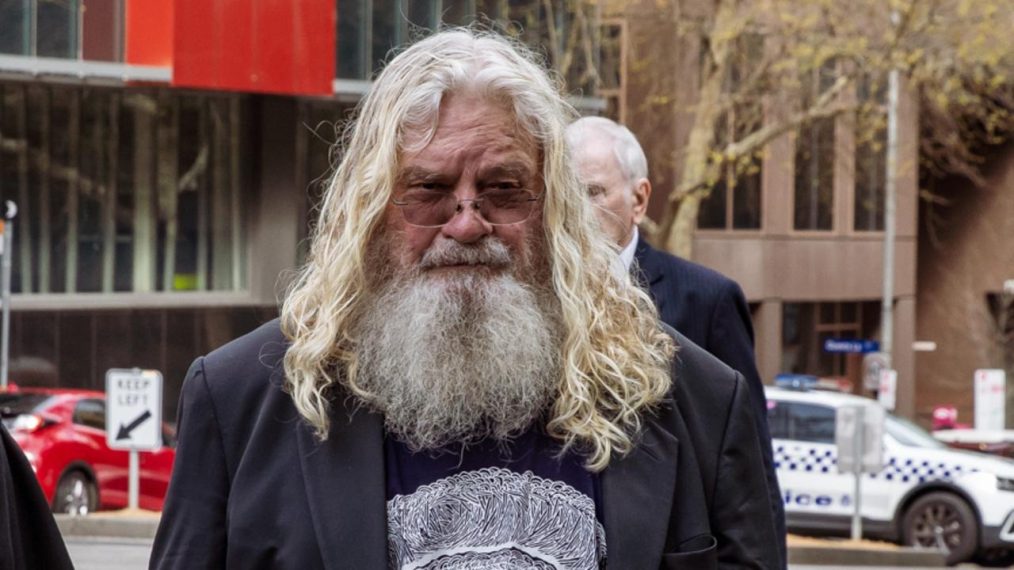Army soldiers from Regional Force Surveillance Group (RFSG) Pilbara Regiment are trialling surveillance robots to patrol and monitor the nation’s north. The Ground Uncrewed System, or GUS, is an uncrewed surveillance system that can be out in the field for around 30 continuous days. The technology is supporting RFSG to keep an eye on areas with difficult terrain across a broader distance.
Pilot Officer Nelson gives you a guided tour of the RAAF E-7A Wedgetail Airborne Early Warning and Control aircraft.
The RAAF E-7A Wedgetail is an advanced Airborne Early Warning and Control (AEW&C) aircraft operated by the Royal Australian Air Force (RAAF). It is based on a modified Boeing 737-700 airframe, equipped with a powerful Multi-role Electronically Scanned Array (MESA) radar and sophisticated command, control, and communication systems. The Wedgetail serves as a vital force multiplier by providing real-time surveillance, threat detection, and battle management to support air and ground operations.
Key Features:
- Radar and Sensors:
- The MESA radar offers 360-degree coverage with the ability to simultaneously track air and maritime targets over vast distances. It can detect and track enemy aircraft, missiles, and ships far beyond the range of standard ground-based systems.
- Battle Management:
- The E-7A acts as a command center in the sky, coordinating and directing air, ground, and naval forces. It can manage airborne assets, allocate resources, and provide a real-time picture of the battlespace.
- Crew:
- The aircraft typically has a crew of 10-12, including mission specialists such as radar operators, surveillance officers, and tactical directors.
- Role and Mission:
- The Wedgetail’s primary mission is airborne early warning, battle space management, and surveillance. It plays a critical role in air defense, coalition operations, and humanitarian missions, as well as supporting military exercises and real-time operations.
- Deployment:
- The Wedgetail has been deployed in various international operations, including in the Middle East as part of the coalition forces supporting the fight against ISIS.
- Capabilities:
- High endurance and long operational range.
- Can communicate with various allied platforms, allowing interoperability in joint operations.
- Equipped with self-protection systems to defend against electronic and missile threats.
The E-7A Wedgetail is a key component of Australia’s integrated defense network, significantly enhancing situational awareness and operational effectiveness for the RAAF.
ED: Bob Buick gave me permission to post this article he wrote about the Bretherton Report
20240612
To: Martin Hamilton-Smith
From: Bob Buick MM
Subject: Contribution to SASR Magazine
I have been invited to contribute to your prestigious magazine and voice my opinion on special forces, the ADF Legal System as I understand it and the Legal proceedings against 2 Sqn warriors during a deployment to Afghanistan and the military law, we had during my Infantry service in 1959-1980.
My service included two overseas deployments in Malaysia with 2RAR 1961-3 and Vietnam with 6RAR 1966-7. I was the Platoon Sergeant of 11 Platoon at Long Tan 18th of August 1966, there is no need to include the battle details not necessary to mention that the platoon suffered 100% casualties over the tour of one Officer and thirty-three Other Ranks, the only platoon to suffer those total casualties. It was an exciting year with lots of highs and lows.
Military Law and Justice in the AMF were detailed in the Manual of Military Law with the AMR&O (Australia Military Regulations and Orders) which was virtually a copy of the British Army system adapted to the Australian Army system. There were certain offences not included and the use of drugs could be referred to the Military Police and dealt with within the service, including murder. It is my understanding that AMF lawyers wanted military law Army, Navy and Air Forces combined into one book and that happened with the creation of the ADF in the 1980s under a Labor government.
So, what changed? The AMF was cast aside the ADF was born and everything changed in the last decade of the 20th century, terrorism became global and the war in the Gulf saw the Australian SF (SASR and 2nd Commando) prioritised as combatants and not the RAR battalions, When Osama Bin Laden became a household name after September Eleven and our SFs were sent to Afghanistan.
I was knocked over when the ABC raised reports that the SASR and Commando had breached the Geneva Convention and incurred war crimes against Afghanistan citizens and will be investigated. I noted that the targets were all the pointy-end warriors and to my knowledge, not one officer was investigated.
I immediately remembered two events one whilst the ARA Cadre to the CMF at Bunbury in the early 1970s. There had been no ARA cadre there for nearly two years and I discovered fraud when evidence of qualifying for service and pay sheets had been falsified and I reported that to battalion headquarters. Three high-ranking (LtCol) officers investigated the fraud, there were three officers of the unit involved. During the investigation, I felt that there was a deliberate attempt to lay the blame on the NCO, including myself to protect the officers. The next was in Brisbane when an Ares soldier was killed in a 25-metre range when she shot herself with a 9 mm pistol. A major was to be the range conduct officer, but he ordered a sergeant to do the job. Only Infantry Warrant Officers and Commissioned Officers were qualified to conduct the shoot. The sergeant was charged, and he was judged by an Ex Major now a civil judge. I attended the court because the sergeant was an RAAOC clerk and I had been the RSM of 1 Training Group to which his unit was under command. He was found not guilty and I wrote to the then Chief of the Army explaining my despair that an NCO was a fall guy for an Officer and hoped that the sergeant’s career would not be jeopardised. The ADC to the C of A, an RMC cadet during my posting at the Duntroon as an Infantry Warrant Officer instructor wrote that there would be no action taken against the sergeant.
I relate these two real-life experiences to the Brereton Report where I understand no Officer was investigated, but who writes doctrine and policies for training for all corps and especially for SASR/Commando units, Officers and who sign off these instructions the Generals!
Surely for SF self-security and safety must be priority number one and when on ops in Afghanistan the security of small patrols must action to protect themselves. So where is my problem in this, Officers develop doctrine and policies that we all follow but when shit happens because of the training we undertake the officers are exempted from the investigation.
I have never heard of such injustices as served on 2 Sqn happening in the twenty years in the AMF. Warriors obey instructions and require initiative and common sense to survive in battle requires 95% training and 5% luck.
Good luck to you all, you have the training and there are many AMF warriors on your side.
ED: From my inbox
We’re often told that solar and wind energy are the future, a way to combat climate change and protect the environment. Labor, the Greens, and the Teals promote this narrative endlessly. But there’s a side to this story they don’t want you to know.
The truth? It’s all about DOLLARS and DESTRUCTION.
The shift to renewables comes at a staggering cost—one that goes far beyond the initial investment. Billion-dollar foreign companies are ravaging our landscape, displacing farmers, and ruining some of the most pristine parts of Australia. All for money.
The Real Cost of Solar and Wind
Establishing solar and wind farms isn’t as cheap or green as they would have you believe. Each wind turbine costs roughly $4 million to install, and a single solar panel farm can run into the billions. And these aren’t permanent solutions—they have lifespans of just 20 to 25 years. After that, we’re faced with the enormous expense of replacing or decommissioning these massive structures, creating a never-ending cycle of costs.
The maintenance and replacement costs can run into hundreds of millions more, especially when you consider that many components for these technologies must be imported. Meanwhile, the benefit to the average Australian? Minimal.
The Loss of Land and Trees
But the costs aren’t just financial. Our natural environment is being devastated. Building solar farms requires clearing vast areas of fertile farmland and cutting down countless trees. We’re losing agricultural land at an alarming rate, land that could be used to feed Australians, in order to make way for energy projects that take up vast amounts of space with relatively low output.
Entire ecosystems are being disrupted. Rare wildlife species are being pushed out of their habitats, and once-thriving regions are becoming industrial wastelands. In coastal areas, wind farms are being constructed offshore, spoiling beautiful beaches and marine environments that are home to diverse ocean life.
Short-Term Benefits, Long-Term Damage
Wind turbines and solar panels may seem like the answer, but they have serious drawbacks. With a lifespan of just two to three decades, we are committing to projects that will need replacing long before they can deliver any lasting benefit. Worse still, the disposal of old panels and turbines adds to an already growing waste problem, with many of the materials used being non-recyclable or toxic.
The Push from Activists and Elites
It’s time to confront the reality: the ideological push for renewables from offshore billion-dollar companies, political elites and environmental activists is tearing apart our countryside and harming our rural communities. Aussie farmers are being forced to give up their land, while rural and regional areas are being sacrificed in the name of “green” energy.
Labor, the Greens, and the Teals won’t talk about these hidden costs, nor will they discuss the true destruction being wrought on our land. They are too focused on their renewable energy agenda to see the long-term consequences for our environment, our farmers, and future generations.
Take a Stand for Australia
We must stop this madness before it’s too late. Our bushland, farmland, and oceans are worth more than a few decades of renewable energy that will need to be replaced before the benefits are even felt. It’s time to stand with Aussie farmers and our regional communities against the big money interests that are driving this destruction.
Let’s stop the renewable destruction now, before it’s too late.
The Battle of Nui Le, fought on 21 September 1971, was the last major confrontation involving Australian and New Zealand forces in South Vietnam. As part of Operation Ivanhoe, Australian and New Zealand troops from the 4RAR/NZ (ANZAC) Battalion engaged in intense combat with the People’s Army of Vietnam (PAVN) 33rd Regiment in Phuoc Tuy Province. This battle marked a significant moment in Australia’s involvement in the Vietnam War, which had spanned over nine years and was increasingly unpopular at home.
Background: Australia’s Withdrawal from Vietnam
By September 1971, Australia was preparing to withdraw its troops from Vietnam, following a decision made by the Australian government in late 1970. This gradual reduction of combat forces mirrored the strategy adopted by the United States, as both countries sought to extricate themselves from the protracted and unpopular conflict. Although the Australians had successfully pushed back the Viet Cong (VC) and North Vietnamese Army (NVA) forces during Operation Overlord in June, by September, these forces had returned to Phuoc Tuy Province. Intelligence suggested that the enemy was preparing to ambush the Australians, hoping to score a propaganda victory before their withdrawal was complete.
The PAVN 33rd Regiment posed the greatest threat to the 1st Australian Task Force (1ATF) as it sought to reassert control over the region. The well-trained and well-armed regiment had fought the Australians before, and their presence in the area indicated a looming confrontation. The 4RAR/NZ Battalion, including two Australian infantry companies (B and D Companies) and one New Zealand infantry company (V Company), was tasked with a reconnaissance-in-force operation to disrupt the enemy’s plans.
The Build-Up to the Battle
Operation Ivanhoe, launched in early September, was aimed at neutralizing the PAVN and VC forces in northern Phuoc Tuy Province. The Australians and New Zealanders were supported by elements of the 3rd Cavalry Regiment, the 104th Field Battery, and American air assets. Intelligence had identified the presence of the 33rd Regiment’s headquarters and 3rd Battalion in the area, but unknown to the Australians, the 2nd Battalion had also moved into the region, increasing the enemy’s strength to approximately 1,100 soldiers.
On 19 September, PAVN forces launched a mortar and rocket attack on a South Vietnamese outpost at Cam My village. Australian armoured personnel carriers (M113s) were sent to investigate but were ambushed by a large PAVN force using rocket-propelled grenades (RPGs) and small arms fire. The next day, 11 Platoon of D Company made contact with a PAVN platoon, resulting in a brief skirmish that left four enemy soldiers dead. Signs indicated that a significant PAVN force had passed through the area.
The commander of the PAVN 33rd Regiment, Colonel Nguyen Van Thuong, believed the Australians were vulnerable due to their reduced artillery support. Based on reports from Viet Cong spies, he expected a battle between infantry forces alone and set ambushes accordingly. However, the Australians did not follow the expected route, avoiding the ambushes.
The Battle of Nui Le
On the morning of 21 September, patrols from 11 Platoon, D Company, discovered evidence of fortified enemy bunker positions near the Courtenay rubber plantation. B and D Companies advanced toward the positions near Nui Le, ready to engage. At midday, 12 Platoon made contact with a PAVN security element guarding the 33rd Regiment’s headquarters, suffering one dead and four wounded from RPG fire.
As the battle intensified, airstrikes were called in. United States Air Force F-4 Phantoms and A-37 Dragonfly aircraft bombed the enemy positions, while Australian artillery and helicopter gunships provided additional support. The PAVN forces appeared to retreat under the bombardment, but this was a ruse, and they remained in their bunkers, waiting for the Australians to advance.
At 2:00 PM, D Company was ordered to move forward and destroy the bunker system. Unknown to the Australians, the PAVN’s 2nd Battalion had not fled as expected. As 11 Platoon advanced 50 meters into the bunker complex, they were ambushed. Three soldiers were killed, and two were wounded. Despite the overwhelming firepower and close-quarter fighting, including hand-to-hand combat, the Australians managed to withdraw under heavy fire, but the bodies of their fallen comrades could not be recovered.
As night fell, the battle continued. The commander of 11 Platoon, Lieutenant Garry McKay, was hit by sniper fire. In the pitch-black conditions, Captain Greg Gilbert, the forward observer, directed artillery fire to within 25 meters of the Australian position, a dangerous manoeuvre that likely saved the company from being overrun. The PAVN commander, realizing that Australian artillery was still active, disengaged at 9:00 PM.
Aftermath and Legacy
The Battle of Nui Le concluded with five Australian soldiers dead and 24 wounded, making it one of the costliest engagements for Australia in the Vietnam War. The PAVN suffered unknown casualties, though 14 bodies were recovered on the battlefield. The following day, New Zealanders from V Company reinforced D Company and conducted a search of the area, finding the bodies of the fallen Australian soldiers.
For their actions during the battle, several soldiers were honoured. Second Lieutenant Garry McKay, who was severely wounded, was awarded the Military Cross, while Captain Gilbert received the Distinguished Service Medal in 2018.
The Battle of Nui Le marked the end of Australia’s combat role in Vietnam. It was a fierce and costly encounter that underscored the bravery and resilience of the Australian and New Zealand forces in the face of a formidable enemy. As the last major battle fought by ANZAC forces in Vietnam, it remains a significant chapter in the history of both nations’ involvement in the war.
Mark Donaldson was awarded the first Victoria Cross medal since the Vietnam War.
Veterans are warning military medals are being devalued, with commanders expecting a decoration for doing their job rather than anything extraordinary.
The military honours system has come under renewed scrutiny after the Defence Minister revoked the medals and citations of up to nine officers linked to units accused of war crimes in Afghanistan.
One anonymous special forces patrol commander, with over 20 years of service, expressed frustration with the inconsistencies in how awards were distributed and the criteria for receiving them. He recounted being shot and wounded in battle alongside Mark Donaldson, the recipient of Australia’s first Victoria Cross since the Vietnam War. Despite a former army chief recommending the commander for a Star of Gallantry, he received no such recognition. Meanwhile, senior officers, who were not directly involved in combat, were commended.
“Was their leadership and command from behind a desk more deserving of a medal than my leadership, command, self-sacrifice, and gallantry in a significant ground battle?” the soldier questioned in a statement.
His account forms part of a submission by the Australian SAS Association to a Senate inquiry examining the Defence honours and awards system. The association argues that the current system is flawed, often overlooking those who risked their lives in combat in favour of senior officers who were distant from the battlefield. This, they claim, undermines the value of military awards.
The association has called for a comprehensive review of all recorded acts of gallantry from the beginning of the Afghanistan conflict. They also criticized the quota system, which they believe has led to some commendable acts going unrecognized.
“There should be no quota on recognising acts of gallantry,” the submission stated, adding that many SAS veterans feel their brave and dedicated service has been undervalued.
The association highlighted numerous examples of veterans who served multiple tours in East Timor, Iraq, and Afghanistan—some up to 15 times—without receiving individual honours, while others received medals after a single deployment. This disparity, they suggest, may be due to personal biases, poor submissions, or a lack of proper consideration.
“It is unacceptable that an officer far removed from the action can override the recommendation of two senior officers who witnessed the act of gallantry firsthand,” the submission argued.
The Senate inquiry, originally scheduled to report by November 28, may be extended due to the controversy surrounding the Defence Minister’s decision to strip some Afghanistan commanders of their awards.
Bell’s V-280 Valor won the US Army’s Future Long-Range Assault Aircraft competition (Bell)
Bell Textron is advancing efforts to promote its V-280 Valor tiltrotor to Australia’s Army. Carl Coffman, Bell’s VP for military sales, will meet with Lt. Gen. Simon Stuart to discuss how the V-280 can meet Australia’s defence and disaster response needs. Coffman highlighted Australia’s vast geography and remote terrain, emphasizing the aircraft’s speed and flexibility for rapid internal force movement. He noted Australia’s familiarity with tiltrotors through the US Marine presence in Darwin and suggested the V-280’s advantages for disaster relief across the Indo-Pacific. While not yet available, the V-280 is in development, with the first test flights planned for 2026 and potential sales likely through the US Foreign Military Sales program.
A four-legged robot mugs for the camera in a video on the website for Australian robotics firm Breaker. (Screengrab from website)
Australian startup Breaker is pioneering a new era of drone technology with a small, unassuming box about the size of a thick deck of cards. While it may not stand out in a room filled with large ground vehicles, this “autonomy stack” is packed with artificial intelligence (AI) algorithms designed to enhance unmanned systems for a variety of missions. Breaker’s co-founder, Matthew Buffa, explained that their technology aims to make drones behave more like human teammates, streamlining operations for the user and reducing cognitive overload.
Buffa emphasized the autonomy of their system. For instance, if a drone detects an abandoned car near a road but deems it non-threatening, it will not bother the operator, who may be preoccupied with more critical tasks. “The operator is doing something important,” Buffa said. “I’m [the drone] not going to go on the radio and tell him about this random car I’ve seen, which is what autonomous systems do right now.”
This AI-driven decision-making contrasts with current autonomous systems, which often require constant human input. Buffa highlighted the company’s goal of building robots that are intuitive to control and reduce the operator’s workload by integrating multiple autonomous systems across domains.
Breaker’s system is designed to function even under high stress. A soldier on a ridge, for example, could designate a single drone to act as the leader of a swarm, which would coordinate with the other drones and sensors. If a threat, such as a truck carrying armed personnel, is detected, the leading drone would inform the operator and seek further instructions. This type of natural two-way communication is key to Breaker’s vision.
Buffa compared the system to the Star Wars character R2D2, which helps Luke Skywalker fly, target, and shoot without overwhelming him with data. Instead of bombarding operators with information, Breaker’s AI aggregates and filters sensor input, alerting users only when necessary.
Before deployment, Breaker trains its AI models on various mission types and threats, ensuring the drones are well-prepared. Buffa explained that their team briefs the drones in much the same way human operators are briefed, providing them with mission details, documents, and visual data. This allows the AI to make smart, informed decisions during operations.
A key advantage of Breaker’s system is its ability to reduce human presence on the battlefield. Buffa pointed to lessons from Ukraine, where drone operators have been targeted by enemy forces due to the radio frequency (RF) signals emitted by their equipment. Breaker’s solution minimizes the need for continuous data streams, making the system more resilient in combat environments. By shifting more control to the AI, fewer humans are required in the field, reducing the risk of counterstrikes.
Buffa believes that offloading command structures to unmanned systems is the future of warfare, a future where operators can focus on high-priority tasks while AI handles routine decisions.
BAE Media Release
BAE Systems Australia has revealed its latest innovation at Land Forces 2024: the Autonomous Tactical Light Armour System (ATLAS™) Collaborative Combat Variant (CCV), an uncrewed ground vehicle (UGV) designed to enhance battlefield operations while safeguarding soldiers. This modular, cost-effective 8×8 UGV leverages BAE Systems’ extensive experience in autonomous technologies and armoured vehicles, developed in collaboration with industry partners.
ATLAS CCV represents a future where autonomous, semi-autonomous, and human-machine teams work together to generate combat mass and reduce the need for soldiers to engage in high-risk tasks. The vehicle operates with high levels of autonomy both on and off-road, complementing crewed vehicles like infantry fighting vehicles and main battle tanks at a lower cost. Its modular design ensures the capability remains adaptable to emerging threats and technologies, incorporating proven systems that can be upgraded as needed.
Andrew Gresham, Managing Director of Defence Delivery at BAE Systems Australia, emphasized the strategic advantage this system offers: “We’ve developed the ATLAS vehicle to give soldiers the advantage on the modern battlefield. This autonomous platform will perform the dull, dirty, and dangerous tasks expected in combat environments.”
A key feature of the ATLAS CCV is the integration of the VANTAGE ATSTM medium-calibre turret system, a lightweight, highly automated weapon designed for uncrewed platforms. Notably, it includes a “human-in-the-loop” targeting system, ensuring human oversight in critical combat decisions.
Transportability is another advantage of ATLAS CCV, as it is engineered to fit into a standard 20-foot ISO container or flat rack, offering a logistics multiplier effect for accompanying crewed platforms.
ATLAS CCV marks a significant milestone in Australia’s defence innovation.
The recent convictions of former senior Indigenous leader Geoff Clark highlight the critical need for comprehensive forensic audits of Aboriginal land councils and trusts. Clark, once the chair of the Aboriginal and Torres Strait Islander Commission, was found guilty of stealing nearly $1 million from various Aboriginal organizations over a 15-year period. His case, now public after suppression orders were lifted, shows that significant sums were misappropriated to cover his personal legal fees, including defending historical rape allegations and other charges.
More than $400,000 of these stolen funds were used for his legal defences between 2000 and 2005. Additionally, Clark directed funds from the Framlingham Aboriginal Trust and Kirrae Whurrong Community Inc to cover expenses related to his personal properties and accepted money from local eel fishermen unlawfully. His actions resulted in convictions on 25 charges, including theft, deception, perjury, and dealing with proceeds of crime. His son, Jeremy Clark, was also convicted of fraud involving over $231,000.
This case underscores the importance of rigorous financial oversight to prevent such large-scale misappropriation within Aboriginal land councils and trusts. Without forensic audits, the potential for funds intended to support communities being siphoned off for personal gain remains a serious risk. Protecting the financial integrity of these organizations is essential to ensuring that funds are used for their intended purpose—supporting Indigenous communities—rather than being lost to corruption or personal agendas.

